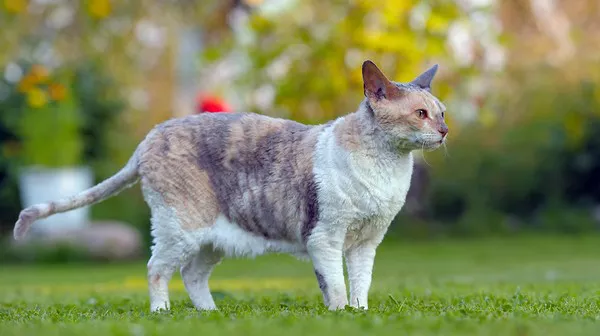The Cornish Rex cat, with its unique curly coat and affectionate personality, has captured the hearts of cat enthusiasts around the world. For those who are passionate about feline breeding, understanding the intricacies of breeding Cornish Rex cats is essential. In this comprehensive guide, we will explore the step-by-step process of breeding Cornish Rex cats, covering important aspects such as selection of breeding pairs, reproductive health, care during pregnancy, and kitten socialization. Whether you’re a seasoned breeder or a newcomer to the world of feline reproduction, this guide aims to provide you with valuable insights to help ensure the health and well-being of both the mother cat and her kittens.
Selecting Breeding Pairs
1. Understanding Genetics
Breeding Cornish Rex cats involves a thorough understanding of genetics. Familiarize yourself with coat types, colors, and potential genetic traits that may be passed on to offspring.
2. Pedigree Evaluation
Select breeding pairs with strong pedigrees and lineage. A well-documented pedigree can provide insights into the health and traits of the cats being bred.
3. Health Screening
Before breeding, ensure that both the male and female cats are in excellent health. Conduct health screenings for common genetic issues and conditions to minimize the risk of passing them on.
Preparing for Breeding
1. Timing
Female Cornish Rex cats, known as queens, experience estrus cycles. Monitor the queen’s behavior and body signals to determine the optimal time for breeding.
2. Male Selection
Choose a compatible and healthy male, also known as a stud, for mating. Introduce the pair gradually and under supervision to ensure a positive interaction.
Mating and Pregnancy
1. Natural Mating
Allow natural mating to occur in a controlled environment. Cats often exhibit natural behaviors during mating, and it’s essential to provide a stress-free setting.
2. Signs of Pregnancy
After successful mating, monitor the queen for signs of pregnancy, such as changes in behavior, appetite, and weight gain. Consult a veterinarian for confirmation.
Pregnancy Care
1. Nutritional Needs
Provide a balanced and nutritious diet tailored to the pregnant queen’s needs. Consult a veterinarian for dietary recommendations and supplements, if necessary.
2. Environmental Enrichment
Create a comfortable and stress-free environment for the pregnant queen. Provide nesting options and quiet spaces where she can rest.
Whelping and Kitten Care
1. Preparing for Birth
As the queen’s due date approaches, prepare a whelping area with clean bedding, heating pads, and supplies for the upcoming birth.
2. Labor and Delivery
During labor, the queen may become more restless and vocal. Be prepared to assist if necessary, but allow her to manage the birthing process naturally.
3. Kitten Care
Once the kittens are born, allow the queen to clean and care for them. Monitor the kittens’ weight gain and health in the early days.
Socialization and Weaning
1. Early Socialization
Handle and interact with the kittens from an early age to promote socialization and human interaction. This prepares them for life as companions.
2. Gradual Weaning
Around the age of four weeks, introduce solid foods to the kittens while allowing them to continue nursing. Gradually transition them to solid food as they grow.
Expert Advice
1. Consult with Veterinarians
Throughout the breeding process, consult with veterinarians who specialize in feline reproduction. Regular check-ups and professional guidance ensure the health of both the mother and kittens.
2. Breeding Associations
Joining breeding associations and forums dedicated to Cornish Rex cats can provide access to valuable resources, expert advice, and support from experienced breeders.
Conclusion
In conclusion, breeding Cornish Rex cats requires a deep understanding of genetics, health considerations, and responsible practices. Selecting compatible breeding pairs, providing optimal care during pregnancy, and ensuring proper kitten care are all crucial aspects of successful breeding. By prioritizing the health and well-being of both the mother cat and her kittens, breeders contribute to the continuation of this unique and beloved feline breed. As you embark on the journey of breeding Cornish Rex cats, remember to seek guidance from experts, prioritize health screenings, and provide a nurturing environment that supports the growth and development of these extraordinary feline companions.


























